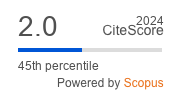Call for Papers for a CIJ Special Issue on 'Co-creation'
Submission deadline: 1 February 2026
Special Issue Editors
- Michela Magas, Director of Research, Industry Commons Foundation
- Andrew Dubber, Senior Researcher, Industry Commons Foundation
- Anne Dvinge, Innovation Partner, KU Lighthouse, University of Copenhagen
- Ana Kuštrak Korper, Postdoctoral Researcher, Linköping University
This special issue sets out to consolidate and extend knowledge of co-creation as a site of innovation. We invite contributions that test methodologies, interrogate political and ethical assumptions around co-creation, develop instruments for evaluation, and present situated cases across domains. We encourage bold, experimental and disruptive approaches that foreground collaboration not simply as a context for innovation but as the engine of it.
Read more about Call for Papers for a CIJ Special Issue on 'Co-creation'
